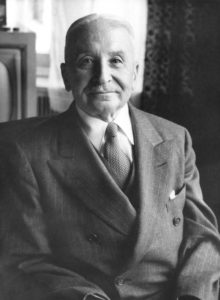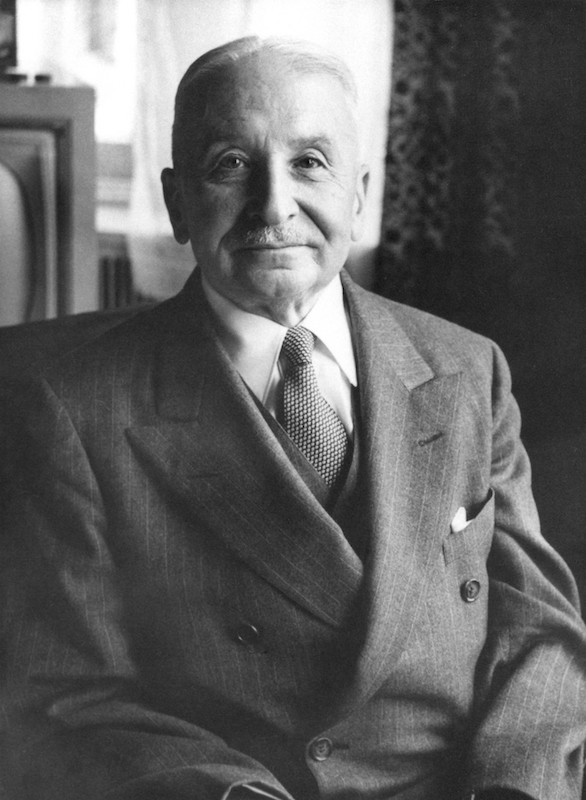
Ken Davis is a former deputy attorney general for the Virginia commonwealth. Hillsdale’s Federalist Society invited Davis to Hillsdale College Nov. 6, to speak on “Capitalism and the Rule of Law.” He received his B.A. from Cornell, his M.A. from Oxford, his J.D. from Harvard Law School, and his MBA from Virginia Commonwealth University. Currently, he is a senior attorney at a private law firm.
Q: When did you know you wanted to attend law school?
A: I knew as a result of my good fortune from the great professors I had at Cornell. My work with them confirmed my interest in American history and government, and that led me to undertake a graduate study and career in law. I didn’t know for sure when I was an undergraduate, but I was very interested in American history, in constitutional history, in political philosophy and economics. All of those things combined led me to law school.
Q: I understand you’re speaking on capitalism and the rule of law. Does the rule of law require a capitalist society or is it the other way around?
A: The two really go together. One presumes the existence of the other. You can’t really have a capitalist economy without the rule of law as a its properly understood. They reinforce each other like buttresses in a cathedral. That’s because capitalism in its essence involves the voluntary exchange among free individuals for mutual economic betterment.
Q: I take it you’re a fan of Ludwig von Mises?
A: Yes, and Hayek. You can’t have a mutually beneficial voluntary exchange without an institutionalized legal system of clear and stable rules that apply to all equally, rules that provide for the enforcement of contracts, the transparent adjudication of disputes and most importantly, the protection of private property.
Q: What are the greatest threats towards a constitutional legal system and a capitalist society?
A: Tuesday is the 100th anniversary of the communist revolution in Russia. They came to power specifically to wipe out capitalism and establish heaven on earth. They wiped out capitalism and the rule of law, and created a living hell on earth.
Q: So you believe communism to still be a threat?
A: Absolutely. It’s concerning to see in a recent poll of young Americans that they would prefer to live under a socialist system than a capitalist one.
What they’re criticizing is not capitalism, it’s really the corporatist political system. We have a consolidated administrative state that is unaccountable and overbearing and characterized by political favoritism. They protect incumbents, they discourage innovation and foster cronyism. I understand the concerns of the economic and political systems in the country but the critics aren’t really criticizing capitalism and the rule of law. Our current system is more of a corporatist system.
Q: So is this corporatist system the greatest threat?
A: It is a big threat because it has replaced the rules with political favoritism. To be clear, the answer is not socialism. The record is clear — everywhere socialism has been applied has been a political, personal and economic disaster. The answer is not socialism. It is a restoration of capitalism and the rule of law.
Q: So how do we do that? Do we need to amend our constitution? Perhaps call for a convention of states?
A: I think discussion of amendments to the constitution are good because they foster a serious debate about serious issues. When looking at the constitution, if you want to change the constitution, the amendment of the constitution is the way to do it, not the progressive fallacy of the so-called living constitution.
Those initiatives, as good as they are, are not enough. The real challenge lies in our institutions themselves. Institutions are merely the formalization of the values and beliefs of the people who form the institutions. We founded this country with those institutions because we had certain beliefs about the sanctity of the individual and individual liberty: natural rights . The most important work that can be done to restore capitalism and the rule of law is to look at those beliefs and values and understanding about natural rights and the sanctity of the free individual and think about initiatives to strengthen those values. That’s why the work and scholarship at Hillsdale is so important, because of the good work everybody does here.
Q: Are you hopeful for the future restoration of the rule of law and capitalism?
A: After visiting Hillsdale, yes.

